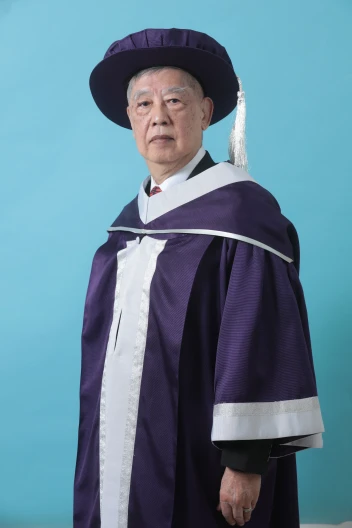
LAU Kin-wing
2018 Honorary Fellow

Citation
Mr Lau Kin-wing has more than 50 years of experience in Cantonese opera, during which he has attained the status as the foremost leader in this art form. His counterparts hold him in high regard for his knowledge of and passion for this music genre.
Mr Lau hails from a Cantonese opera family. His father Mr Lau Yun-hung, affectionately known as King of Erxian, was a renowned Cantonese opera master in Guangdong. His mother Ms Wai Siu-fong was one of the four most popular Cantonese opera leading ladies in the 1930s. With his parents' example, Mr Lau had the ambition of making his career in Cantonese opera at a young age. Despite his family’s rather cool reception to this idea, Mr Lau pursued his dream and eventually made it come true.
Mr Lau believes Cantonese opera is much more than a lifelong career. It is a cultural treasure. For this reason, he unflinchingly promotes the cultural values of Cantonese opera and has taken his performances across international boundaries to introduce this performing arts form to worldwide audiences. In 1971, Cantonese opera virtuoso Dr Lam Ka-sing invited Mr Lau to become music director of Tsung Sun Sing Troupe. Touring destinations included the US, Canada, Europe and Southeast Asia. In 1990, Mr Lau founded Pang Shing Music House to take his shows around Hong Kong. In 1993, he became music director of several more troupes, including Ming Chee Sing Troupe and Prime Splendor Theatrical Troupe. He has produced over a hundred of Cantonese opera records, which Cantonese opera lovers regard as important reference materials.
Although Mr Lau retired in 2012, he still has a busy schedule. His eagerness to perpetuate this musical culture coincides with the beliefs of the Academy. In the past, Cantonese opera had a mentor and disciple approach – a process which Mr Lau himself went through. When the Academy established the School of Chinese Opera, a new pedagogy was introduced, which, while respecting tradition, also incorporated modern methodology. Today, Mr Lau frequently shares his experience with the Academy and offers assistance in formulating appropriate teaching programmes by researching the two teaching approaches.
Mr Lau has now embarked on a new mission of nurturing aspirants. His selfless sharing of his knowledge with the School of Chinese Opera has facilitated programme development. While the School and the Hong Kong Council for Accreditation of Academic and Vocational Qualifications conducted programme accreditation a few years ago, Mr Lau offered his unique insights into many issues. In addition to such voluntary work, Mr Lau is also a member of the advisory committee of the School, to which he is music consultant. The Academy is grateful to Mr Lau for his contribution to the development of the School of Chinese Opera.